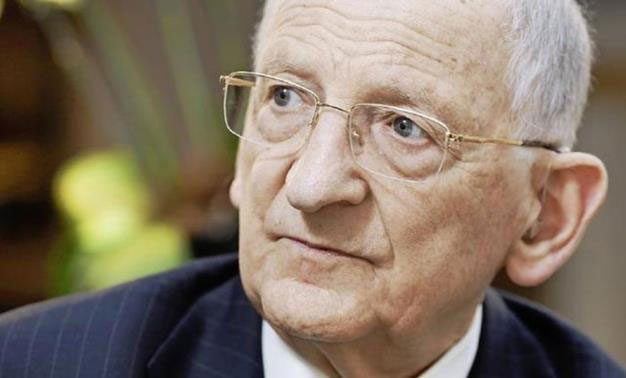Dr. Otto Kernberg, widely known for his psychoanalytic work, spoke at the Lindenmann Lecture.

By Lauren Knopf, M.A.
Dr. Otto F. Kernberg was born in Vienna, Austria and received an M.D. from the University of Chile Medical School, completing his analytic training in Chile. Among his many positions and accomplishments, he has received two honoris causa and has been president of the International Psychoanalytic Association.
On January 22, 2014, despite delays on the LIRR and NYC subway due to inclement weather, students and faculty of the Derner Institute flocked to Alumni House on the Garden City campus to hear Dr. Otto F. Kernberg deliver the 2014 Lindemann Lecture and workshop. Dr. Kernberg first discussed the spectrum of psychodynamic psychotherapies employed in the field, followed by a workshop reviewing transference-focused psychotherapy (TFP) for borderline personality disorder (BPD).
Widely known for his psychoanalytic theories on borderline personality organization and narcissistic symptomology, Dr. Kernberg delivered a remarkably in-depth and insightful lecture that re-energized faculty and student minds in preparation for the start of the spring semester. He presented a comprehensive overview and synthesis of modern psychodynamic therapies, which provided a helpful context for understanding the principles of TFP. His instructions and outline of the process of TFP were brought to life with vivid examples from his clinical practice. Several members of the audience remarked upon Dr. Kernberg’s impressive stamina during the all-day lecture. “His energy and enthusiasm were inspiring,” said doctoral student Racheli Miller.
As part of the lecture, Dr. Kernberg showed a mock structural interview he had conducted with an actor, whose performance as a reticent and somewhat disorganized new patient was remarkably true to life.
The structural interview introduced by Dr. Kernberg is designed to assess various aspects of the patient’s functioning, including attention, concentration, memory, intelligence, and mental status. At the more in-depth level, the interview assesses character traits and sense of identity, which are key to the assessment of the borderline patient. Dr. Kernberg successfully applied the structural interview to a BPD case that assisted students’ understanding of the technique.
The experience was one that created a lasting impression on students. Doctoral student Nadia Kuprian summed up the experience: “The interview demonstrated how a psychodynamic treatment can be straightforward and action-oriented, while staying true to its fundamental [psychoanalytic] principles.”
For further information, please contact:
Todd Wilson
Strategic Communications Director
p – 516.237.8634
e – twilson@adelphi.edu